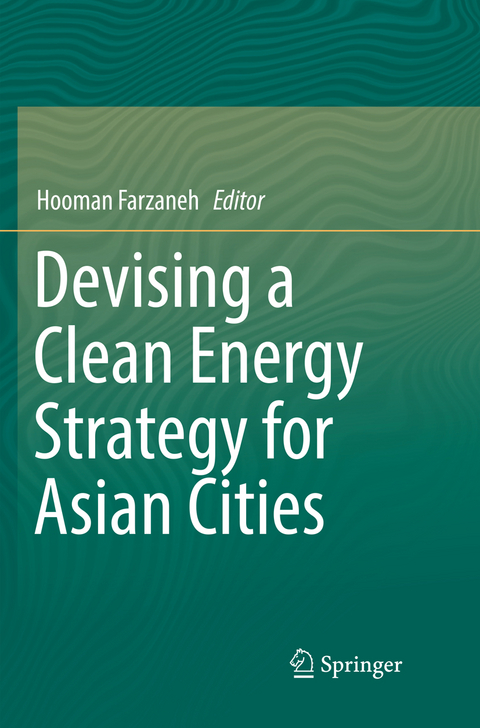
Devising a Clean Energy Strategy for Asian Cities
Springer Verlag, Singapore
978-981-13-4499-2 (ISBN)
The clean energy strategy proposed in this book refers to the development and implementation of policies and strategies that simultaneously contribute to addressing climate change and solving local environmental problems, which also have other development impacts. It provides insights to a wide audience on successful ways to promote, design and implement the clean energy policies in Asian cities.
To determine the global actions, it is necessary to make breakthroughs by promoting further research and to present scenarios that achieve Low Emission Development Strategies (LEDS) goals without dependence upon fossil fuels. The scenarios and case studies discussed in this book are helpful to plan for the SDGs, where various objectives have to be achieved at the same time. The UN 2030 development agenda needs innovative planning to achieve multiple goals with limited resources and generate synergy among sectors. This book will be one of the first books available on this subject.
Hooman Farzaneh is an associate professor at Kyushu University, Japan. He is particularly interested in issues related to quantitative and qualitative analysis focusing on developing research patterns of low carbon energy scenarios and policy implementations designed to tackle air pollution problems in both regional and local scales. Prior to Kyushu University, Hooman worked at the Institute of Advanced Energy, Kyoto University and the United Nations University. He is the principle investigator of a funded research project, entitled “clean energy development in Asia-Pacific Cities”, at the Kyushu University Platform of Inter/Transdisciplinary Energy Research.
Preface.- Part I: Analytical approach.- Chapter 1: Scenario analysis of low carbon urban energy system in Asian cities.- Chapter 2: Co-benefits: A Comparative Analysis of Enablers and Barriers.- Chapter 3: Limit to Urbanization: Application of Integrated Assessment for Smart City Development in India.- Chapter 4: Pragmatic Collaboration for Resilient Climate Co-benefits Policy Implementation.- Chapter 5: Towards clean and sustainable transport in Asian cities – Lessons learnt from Japanese experiences.- Chapter 6: Extensive strategies for urban transformation toward SDGs in Asian cities.- Part II: Lessons from real cases.- Chapter 7: A Post Evaluation of Solar City Demonstration Project in Turpan, China.- Chapter 8: Targets and Supporting Strategies for the Clean Energy Development in Delhi.- Chapter 9: Towards Cleaner Cities - Renewable Energy Initiatives in Malaysia.- Chapter 10: Compact Energy Consumption: Urban Way of Energy Saving in Seoul.- Chapter 11: Tokyo’s low emission development strategies underlying the promotion of energy efficiency in public and private buildings.
| Erscheint lt. Verlag | 23.12.2018 |
|---|---|
| Zusatzinfo | 44 Illustrations, color; 20 Illustrations, black and white; X, 222 p. 64 illus., 44 illus. in color. |
| Verlagsort | Singapore |
| Sprache | englisch |
| Maße | 155 x 235 mm |
| Themenwelt | Naturwissenschaften ► Biologie ► Ökologie / Naturschutz |
| Naturwissenschaften ► Geowissenschaften ► Meteorologie / Klimatologie | |
| Sozialwissenschaften ► Politik / Verwaltung | |
| Technik ► Elektrotechnik / Energietechnik | |
| Schlagworte | Clean and sustainable transport • climate change • Co-benefits • LEDs • Low carbon urban energy system • Low Emission Development Strategies • renewable energy • sustainable city |
| ISBN-10 | 981-13-4499-X / 981134499X |
| ISBN-13 | 978-981-13-4499-2 / 9789811344992 |
| Zustand | Neuware |
| Haben Sie eine Frage zum Produkt? |
aus dem Bereich


